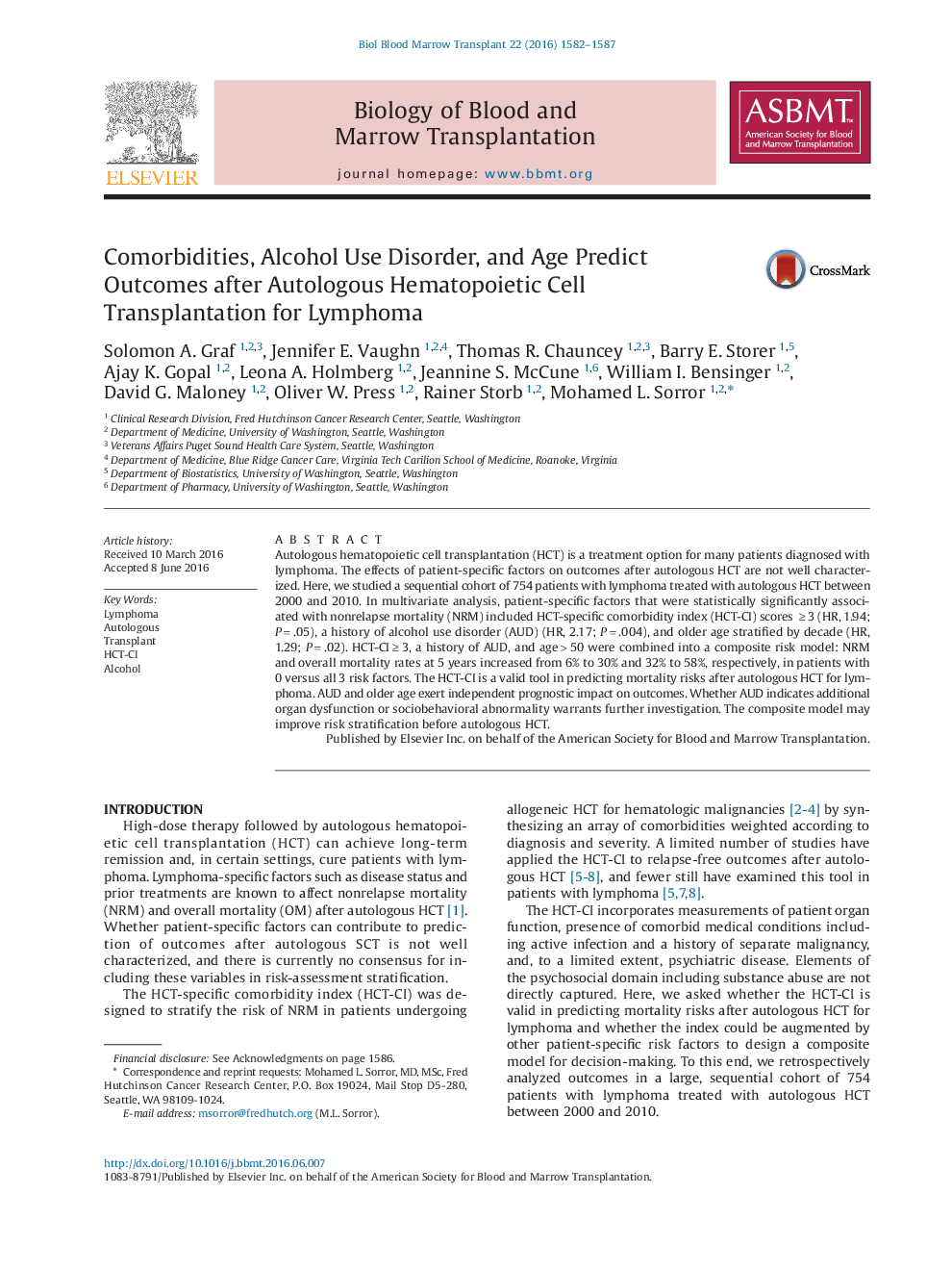| کد مقاله | کد نشریه | سال انتشار | مقاله انگلیسی | نسخه تمام متن |
|---|---|---|---|---|
| 2101275 | 1546250 | 2016 | 6 صفحه PDF | دانلود رایگان |
• Higher HCT-CI score, alcohol use disorder, and older age each contribute risk to NRM.
• In a combined model, multiple risk factors associate with markedly increased mortality.
Autologous hematopoietic cell transplantation (HCT) is a treatment option for many patients diagnosed with lymphoma. The effects of patient-specific factors on outcomes after autologous HCT are not well characterized. Here, we studied a sequential cohort of 754 patients with lymphoma treated with autologous HCT between 2000 and 2010. In multivariate analysis, patient-specific factors that were statistically significantly associated with nonrelapse mortality (NRM) included HCT-specific comorbidity index (HCT-CI) scores ≥ 3 (HR, 1.94; P = .05), a history of alcohol use disorder (AUD) (HR, 2.17; P = .004), and older age stratified by decade (HR, 1.29; P = .02). HCT-CI ≥ 3, a history of AUD, and age > 50 were combined into a composite risk model: NRM and overall mortality rates at 5 years increased from 6% to 30% and 32% to 58%, respectively, in patients with 0 versus all 3 risk factors. The HCT-CI is a valid tool in predicting mortality risks after autologous HCT for lymphoma. AUD and older age exert independent prognostic impact on outcomes. Whether AUD indicates additional organ dysfunction or sociobehavioral abnormality warrants further investigation. The composite model may improve risk stratification before autologous HCT.
Journal: - Volume 22, Issue 9, September 2016, Pages 1582–1587
